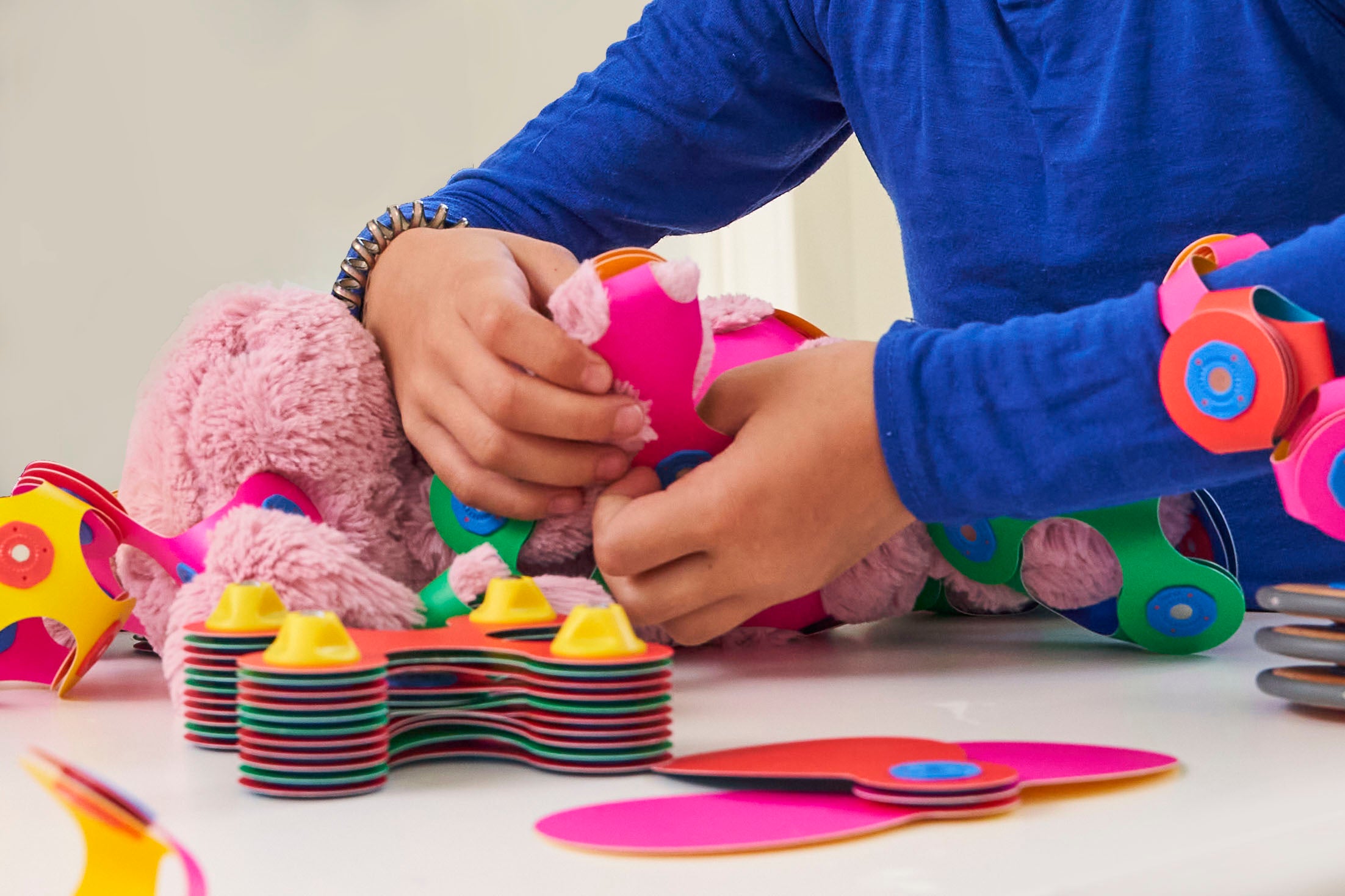Why Playing Pretend Is Great For Kids
And How to Encourage It
In today’s world, we rely heavily on the internet. Have a question you need the answer to? Google it! We don’t have to use our brain power as much as we used to. The problem is that this convenience leaves little room for fostering creativity and imagination. Let’s look at the benefits of playing pretend and how to encourage it.
Why is Playing Pretend Important in Child Development?

According to a study that observed 108 children, those who engaged in playing pretend were more likely to display positive emotions. The conclusion was that playing pretend may not only improve a child’s emotions but the other children playing with them too.
Another study showed that children that engage in pretend play have improved executive functions. The results showed that children in a 5-week fantastical pretend-play intervention showed the most improvement. Executive functions include adaptable thinking, time management, organization, and other skills. Overall, pretend play is an important part of childhood development with many benefits.
Benefits of Playing Pretend

Encourages Imagination and Creativity
One of the biggest benefits of pretend play is that it encourages imagination and creativity. When children play pretend, they have to come up with the ideas in their own minds and carry them out. This gets the wheels turning and helps them exercise their brain. For example, when you give a child a prompt for playing pretend, they have to think about it and execute it.
Supports Social and Emotional Development
When children are playing pretend, they are getting practice playing different roles and will experience different emotions as they are embracing what they’re pretending to be. Even if they’re pretending to be a dinosaur, they are still thinking outside of their own mindset. This also helps them to develop self-awareness while they learn to think and act like someone, or something else.
Improves Communication Skills
As children learn to play pretend with others, they’re going to improve their communication skills. They’ll learn new words and ways to speak and convey their ideas. When you give children a task during pretend play, there will be an opportunity to discuss it afterward to help them work on expressing their thoughts and ideas.
Develops Problem Solving Abilities
In a sense, playing pretend is problem-solving. Children have to figure out how they are going to carry out what they’re pretending to be. For example, when you give a child a task such as pretending to be an airplane taking off, they have to figure out how to execute that.
It’s Great for Physical Development
Playing pretend is typically an activity involving a group of children. What happens when a group of kids is together? A lot of running around. So, when they’re playing pretend they will be getting plenty of physical activity.
How to Encourage Playing Pretend
Start Encouraging Pretend Play at a Young Age
Starting to encourage pretend play at a very young age will help children start to develop creativity as early as possible. Toddlers have the ability to play pretend, even if they can’t totally understand what you’re saying. You can give them an idea with toys or props and let them carry it out in their own interpretation. When they are very young, you should play with them as this will help them, and you’ll have fun too!
Make Sure They Have Time to Play
It can be easy to want to schedule out your child’s day down to the minute to avoid chaos and ensure they’re being stimulated enough. Free time is equally as important, and can be used to play pretend!Get Them Toys That Encourage Playing Pretend
Another great way to encourage playing pretend is to get them toys that they can utilize when playing. Pretty much any toy can be used for playing pretend, but some are better than others. Some of the best toys for playing pretend are costumes, puppets, and building blocks.
We recommend Clixo’s magnetic building shapes. With the different shapes and colors, a kid, or adult’s imagination can run wild with the possibilities. Try giving them a task to build with them and a role to play.
Play Together
Playing pretend isn’t just for kids! Try playing with them so they can see how you lay pretend, too. This will help them expand their creative mind and learn new ways to play. It will also be fun and beneficial for you! So throw on that princess crown and get to playing!
Don’t Force Anything
If they don’t seem interested in a certain idea, don’t push it. They aren’t going to get anything out of it if they don’t see the fun in the idea. Playing pretend will only benefit them if they are interested in what they are doing.
Utilize Their Interests
As a parent, you probably have a good idea of what your kids are interested in. Try to incorporate those interests when picking ideas for them to play pretend! If they like dinosaurs, try to create ideas surrounding that perhaps with toys and costumes.
Final Thoughts
The bottom line is that playing pretend is an essential part of childhood. It may seem like just fun and games, but the benefits will follow them throughout their life. So get out the costumes and building blocks and get to playing!



